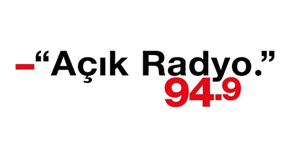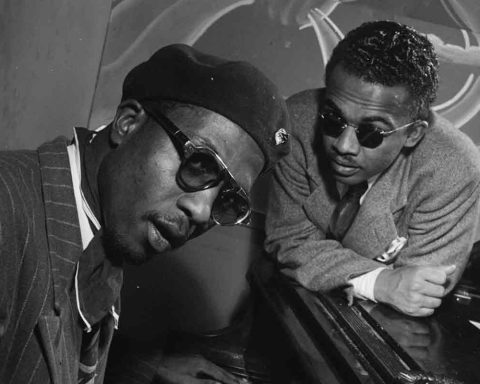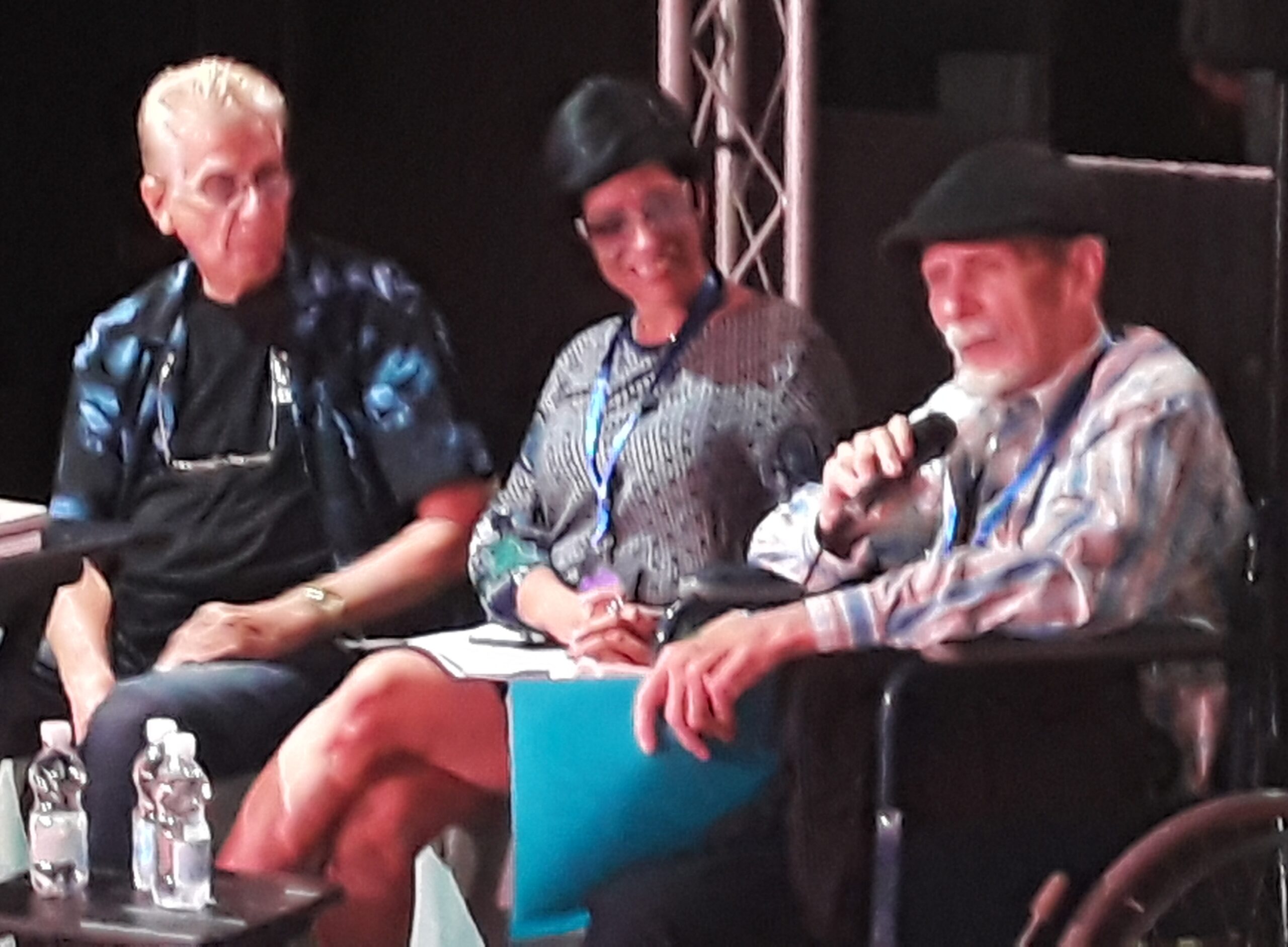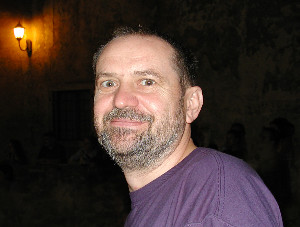 You don’t know where to start when writing about “jazz in your country,” especially if you are addressing an audience unfamiliar with the subject — the subject being Turkey, of course, not jazz. So I’ve decided to strip the story down and start with the single most important institution in my roughly 15-year jazz career and a pretty significant one for jazz in Turkey overall: Acik Radyo (Open Radio), the number-one favorite radio station of jazz fans in this country.
You don’t know where to start when writing about “jazz in your country,” especially if you are addressing an audience unfamiliar with the subject — the subject being Turkey, of course, not jazz. So I’ve decided to strip the story down and start with the single most important institution in my roughly 15-year jazz career and a pretty significant one for jazz in Turkey overall: Acik Radyo (Open Radio), the number-one favorite radio station of jazz fans in this country.
It was sometime late in 1995 that people living in Istanbul started to hear something unusual on the air — music that sounded different than what they heard anywhere else, news that had almost nothing in common with that delivered by the rest of the media, programs that felt like remedies for the current “incuriosity syndrome” not only in this country but around the globe. This was the individual sound of Acik Radyo, a radical alternative with respect to its content, choices and coverage. It definitely sounded more democratic, intelligent, sensitive and far more polite! This was radio with personality.
Acik Radyo, whose motto is to be “open to all the sounds, colors and vibrations of the universe,” was formed as a nonprofit regional radio station and started to broadcast initially only to the metropolitan Istanbul area and its environs, but gradually spread all over the world via the Internet.
For two years I was all ears with a growing interest in and admiration for the quality content and incredible breadth of their programming. And in terms of the topic at hand, it was also heaven for music buffs like me. It was a place where you could listen to documentaries or serials on Bach to Brecht, Beatles to Brel, Duke Ellington to Mahler, ECM to Soviet rock, and the list could go on and on.
[pullquote]Acik Radyo could foreshadow the birth of sustainable independence for Turkish radio as a whole.[/pullquote]
It was all so motivating but I couldn’t help wondering: would the radio’s doors be open to an amateur jazz enthusiast like myself, too? Of course they were. So, while a career-changing — if not life-changing — transformation was gradually taking place for me over these 15 years, it was also true that Istanbul’s jazz life — and eventually Turkey’s — would surely not stay the same.
Acik Radyo is a station where jazz fans could listen to John Coltrane’s musical development every week for six months in honor of his 80th birthday, then learn the tiniest details of Billie Holiday’s life and career, this time for a whole year, in honor of her 90th. Of course, Charlie Parker was not forgotten on the 50th year since his death, nor Gershwin on his 100th birthday. A weekly jazz history program, starting with 19th-century New Orleans all the way to our present time, ran for one whole year and nobody complained!
It wasn’t only the popular jazz heroes that Acik Radyo covered. You could easily come across many serials on avant-garde players like Albert Ayler, Don Cherry, Sun Ra, Cecil Taylor and the like. And of course, you could always tune into one of the weekly 10-plus jazz programs to get the flavor of the latest jazz albums.
According to polls conducted by the two major festivals in the country, the Istanbul International Jazz Festival and Akbank International Jazz Festival, Acik Radyo always comes out as the most preferred radio station among Turkish jazz fans. [Note: 37 radio stations were mentioned by 516 people when asked to name their favorite. Though the majority of these stations broadcast mostly popular Turkish music, there are roughly 10 stations that play some jazz, and at least five of them — Acik Radyo, the state channel TRT and the rest privately owned — have serious jazz content.]
This is great, but if you’re a noncommercial enterprise and don’t want to feel the financial pressure at your back, then you have to do something else to survive. Funds obtained by regular advertisements and sponsorships were always insufficient to say the least, and all programmers working on a voluntary basis from day one didn’t help much either, although it did show rather exceptional dedication.
With the hope of reaching a level of permanent financial sustainability, a project called “Acik Radyo is seeking its listeners” was launched at the beginning of 2004. During the nine-day radiothon, listeners were asked to sponsor one or more programs. Now, at the end of its sixth Listener-Support Project, Acik Radyo’s individual sponsors have reached 4,500. This may be a very rare if not entirely unique case of individual participation in all of Turkish media, and it could even foreshadow the birth of a model of sustainable independence for Turkish radio as a whole.
There’s much more to say about Turkey’s jazz scene at large, but a good place to start is a radio phenomenon that shook Istanbul’s cultural scene on many levels and happened to involve jazz from the start.






I am looking forward to more news about jazz in Turkey. Having made several trips to Turkey (first in 1970 and most recently in 2000), I am a big fan of Turkish folk music--especially the clarinetists. I have, however, spent much more time in Greece and wrote the first article in English about jazz in Greece more than 20 years ago. Since that time, I have also tried to follow Turkish jazz a bit. So I am pleased to know about Acik Radyo. Stay in touch with the JJA.